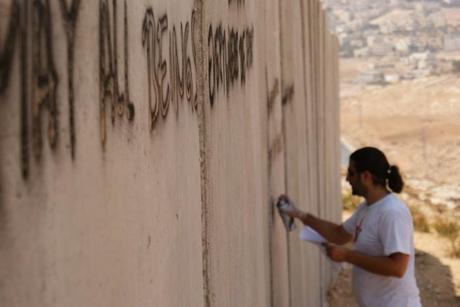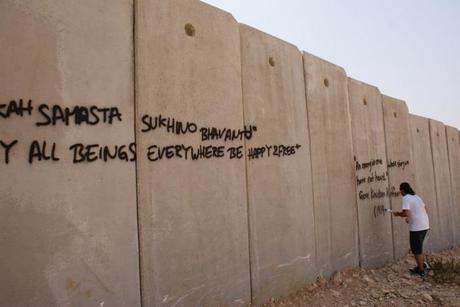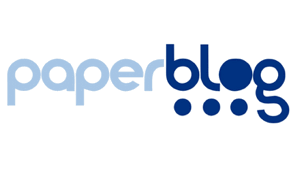It is somehow fitting that Faris Aruri wears a Che Guevara shirt: the activity he’s engaged in does have its anarchic elements.
Near the Palestinian town of Anata, the 28-year-old from Ramallah sprayed a message on the wall separating the West Bank from Israel, or vice versa, depending on your perspective.
The Israeli government approved the construction of the separation barrier in 2002 to prevent the uncontrolled entry of Palestinians from the West Bank into Israel.
In most places this barrier takes the form of a barbed wire fence with ditches around it, while other stretches consist of a solid concrete wall. There, the barrier is a grey monster, snaking its way through the landscape.
For some, it is also a clean slate on which to express their anger, their fear and their hope.
On one recent day, there were several requests for forgiveness, birthday wishes and funny puns. They are the usual requests, Faris said while spraying one from Germany: “Hello Sarah, all the best to you. Can you forgive me at some point? Mum.”
The barrier, which is now about 500 kilometers long, is often laced with graffiti, at least in the accessible spots — it is an eight-meter-high slate with a barbed wire crown. The British street artist Banksy, who is famous for his stencil graffiti, called the separation barrier the “ultimate graffiti artists’ holiday destination.”
Of course, doing the Banksy is not legal.
As if on cue, a military jeep approached the wall where Faris was spraying. Standing in the glaring midday heat, he quickly glanced over his shoulder, but as the jeep came to a halt, the soldiers eyeing him from a distance, Faris shook his can and continued unfazed.

“In the beginning, the army was planning to terrorize us by intimidating the team a few times,” he said. “But then they realized the more they do it, the more media attention the project is getting.”
The project, called “sendamessage,” works like this: You submit your message on a Dutch website and pay 30 euros. Then Faris and his Palestinian colleagues spray the messages on the wall, shoot some photos and send them as e-postcards to their customers.
It is meant to be a political statement against the separation barrier, even if the messages are often completely apolitical.
“Spraying these messages on the wall provides information from a different angle, different from what the PR machines around the world are turning out,” said Fatima Abdul Kareem, 25, a fellow Palestinian, who is shooting the pictures today.
The idea was the brain child of a workshop which brought together Palestinian activists and Dutch advertisers.
The activists at “sendamessage” have sprayed more than 2,000 messages on the wall over the last three years. You can find statements like “Don’t teach ethics to us,” coined by former Israeli Prime Minister Menachem Begin, as well as falafel recipes and marriage proposals.
With each e-postcard, the activists send links about the situation in the West Bank. According to Faris, some clients became activists that way.
Almost completely surrounded by the concrete wall, Anata is symbolic of the current political situation in the West Bank. After the Israeli government allowed the freeze on Jewish settlement building in the West Bank, a major sticking point in the region’s fledging peace talks, to expire last week, building began again here almost immediately.
As the subject of the settlements was and is one of the core issues in the ongoing negotiations, many analysts consequently declared the peace talks over, expecting the Palestinians to leave the table.

Faris, meanwhile, continues to fill the grey slate with content. For 30 euros a pop, the messages come across as rather expensive, but Faris said that some of it goes into maintaining the website and the rest to youth projects in the West Bank. The sprayers themselves receive nothing except expenses for transport and cans.
“I believe that no matter how long oppression and injustice rule, they will never prevail,” Faris said. “Just as the Berlin wall fell at some point. If you had asked people five years before, they would have told you, ‘not in the coming future.’”
A can provides paint for about 10 messages and with the last message it is empty. Faris pulled the latex glove off his hand and wiped the sweat off his forehead. Then, he remembered his first encounter with the Israeli military.
“When we were stopped the first time, our argument was: ‘you built this wall to separate us and supposedly this side is ours. We are not destroying it. We have a message and we are spraying it. If you don’t like it, just remove the wall.’”


